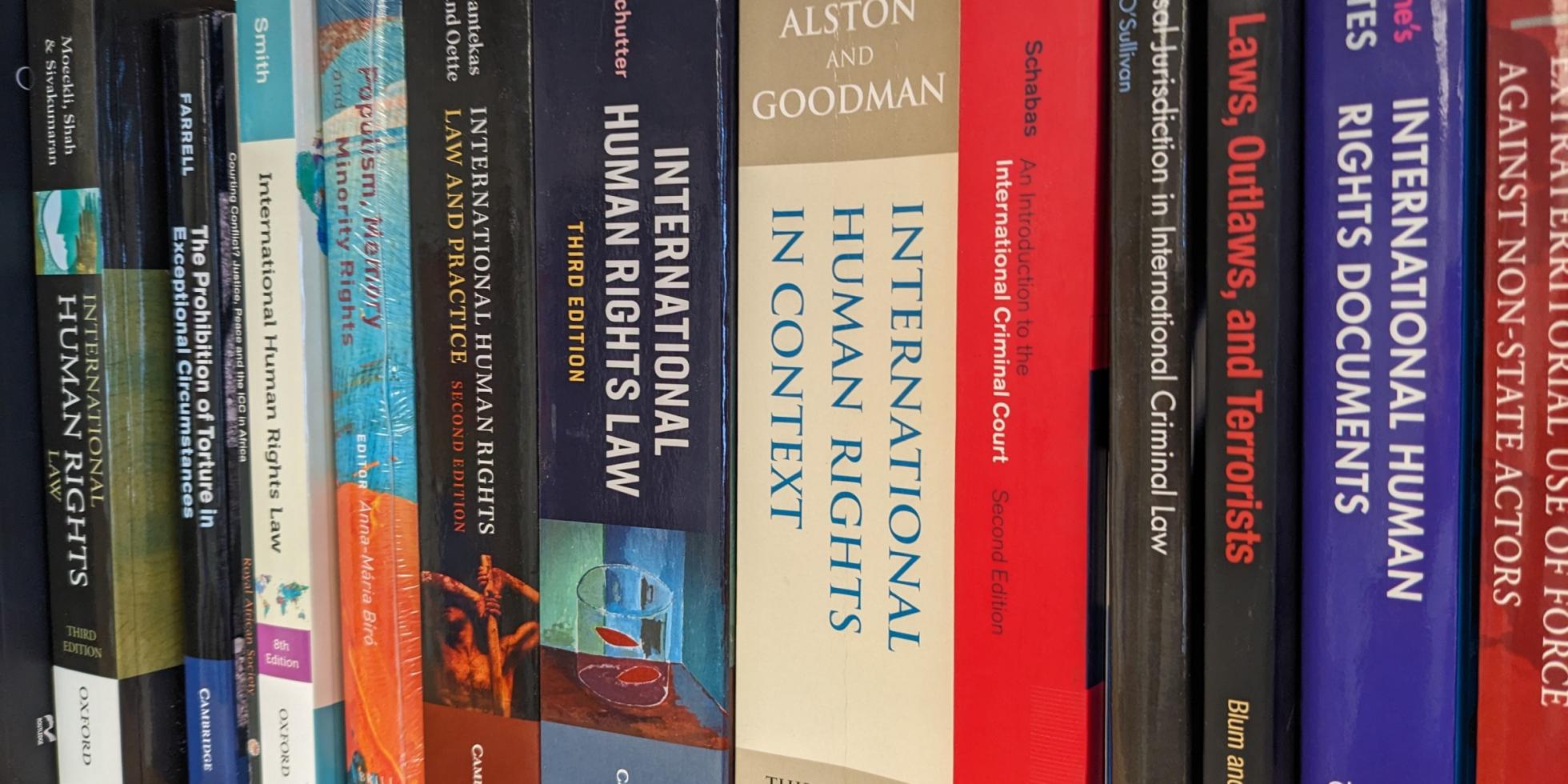The virtual human rights library brings together resources from multiple libraries and information services, both internal and external, to create an online hub dedicated to the study of human rights. This curation is unique in its interdisciplinary concerns and focuses on writings and research from social sciences, humanities, and law.
The virtual library is continually updated with the latest academic research in issue areas, as well as with relevant films, recorded conversations, and other forms of media.
Please Note:
The Virtual Library is usable by all visitors, but the hyperlinks to materials listed are for UChicago community members with a CNet ID and password.
Please direct feedback and suggestions to Kathleen Cavanaugh.
For technical assistance, email pozenhumanrights @ uchicago.edu.
Searchable Database
Click into the dropdowns to select the disciplines, keywords, and media type for your search, and then hit "Apply."
Objects of War: The Material Culture of Conflict and Displacement
Historians have become increasingly interested in material culture as both a category of analysis and as a teaching tool. And yet the profession tends to be suspicious of things; words are its stock-in-trade. What new insights can historians gain about...
Pure Land in the Making: Vietnamese Buddhism in the US Gulf South
Since the 1970s, tens of thousands of Vietnamese immigrants have settled in Louisiana, Florida, and other Gulf Coast states, rebuilding lives that were upended by the wars in Indochina. For many, their faith has been an essential source of community...
Refugee Conversations
Published in English for the first time, Refugee Conversations is a delightful work that reveals Brecht as a master of comic satire. Written swiftly in the opening years of the Second World War, the dialogues have an urgent contemporary relevance...
Rules for the World: International Organizations in Global Politics
Rules for the World provides an innovative perspective on the behavior of international organizations and their effects on global politics. Arguing against the conventional wisdom that these bodies are little more than instruments of states, Michael Barnett and Martha Finnemore...
Stealing Home: Looting, Restitution, and Reconstructing Jewish Lives in France, 1942-1947
Between 1942 and 1944 the Germans sealed and completely emptied at least 38,000 Parisian apartments. The majority of the furnishings and other household items came from 'abandoned' Jewish apartments and were shipped to Germany. After the war, Holocaust survivors returned...
The Civil Contract of Photography
Ariella Azoulay revises our understanding of the ethical status of photography. It must, she insists, be understood in its inseparability from the many catastrophes of recent history. She argues that photography is a particular set of relations between individuals and...
The Empire of Trauma: An Inquiry into the Condition of Victimhood
Today we are accustomed to psychiatrists being summoned to scenes of terrorist attacks, natural disasters, war, and other tragic events to care for the psychic trauma of victims--yet it has not always been so. The very idea of psychic trauma...
The Farming of Bones
It is 1937, the Dominican side of the Haitian border. Amabelle, orphaned at the age of eight when her parents drowned, is a maid to the young wife of an army colonel. She has grown up in this household, a...
The Great Departure: Mass Migration from Eastern Europe and the Making of the Free World
Between 1846 and 1940, more than 50 million Europeans moved to the Americas in one of the largest migrations of human history, emptying out villages and irrevocably changing both their new homes and the ones they left behind. With a...
The Lost Children
During the Second World War, an unprecedented number of families were torn apart. As the Nazi empire crumbled, millions roamed the continent in search of their loved ones. The Lost Children tells the story of these families, and of the...

